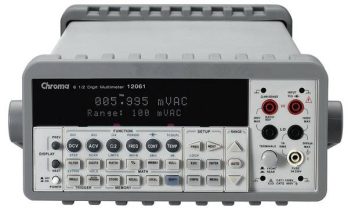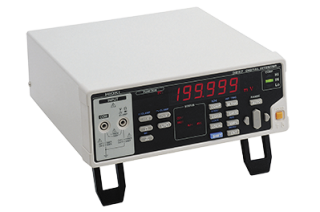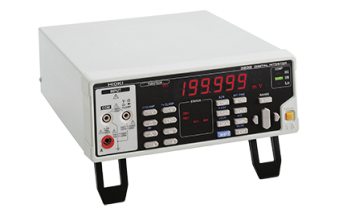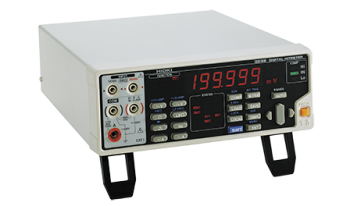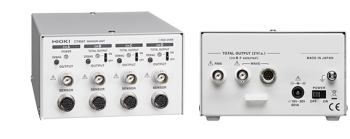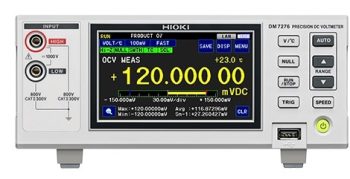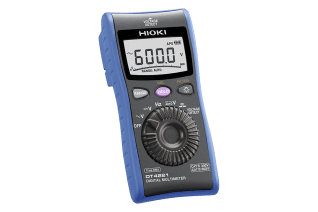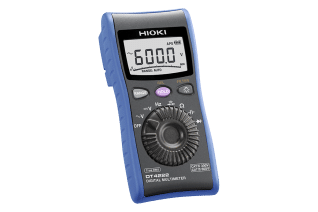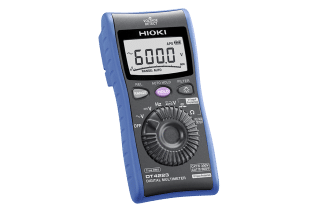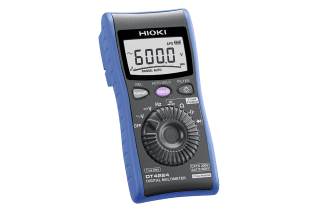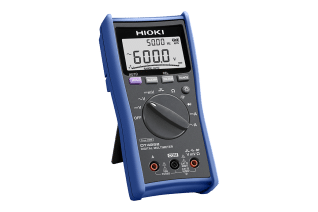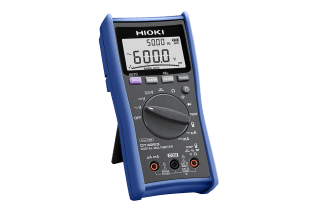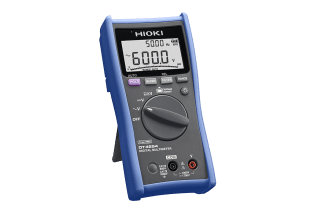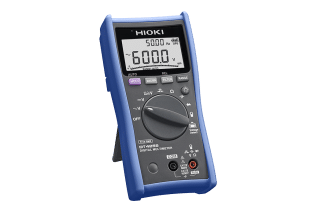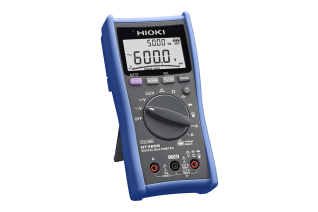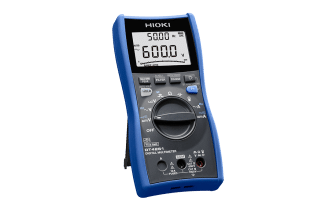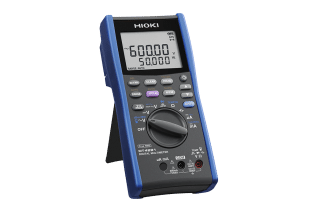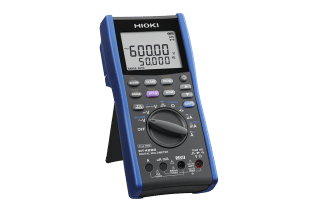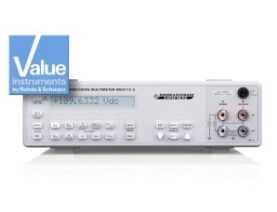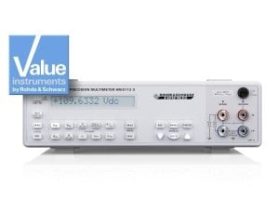Test & Measurement /
Digital Multimeters
A digital multimeter (DMM) is a versatile electronic test instrument that can be used to measure various electrical parameters. It is an essential tool for anyone who works with electronics, from hobbyists to professional engineers.
Digital multimeters are used to measure voltage, current, resistance, continuity, diode voltage drop, capacitance, frequency, and temperature. They are preferred over analog multimeters due to their accuracy, speed, and ease of use. A DMM has a digital display that shows the measured value, making it easier to read and interpret the results.
Most DMMs have a basic set of features, such as a dial or button for selecting the measurement function, a range selector, and test lead inputs. They are typically powered by batteries, which can be easily replaced when necessary.
Digital multimeters can be used to troubleshoot a wide range of electrical problems. For example, they can be used to test the voltage of a battery, measure the current flowing through a circuit, or check the resistance of a component. They are also useful for testing the continuity of wires and checking the functionality of diodes and other electronic components.
A digital multimeter (DMM) is a versatile electronic test instrument that can be used to measure various electrical parameters. It is an essential tool for anyone who works with electronics,…
...from hobbyists to professional engineers.
Digital multimeters are used to measure voltage, current, resistance, continuity, diode voltage drop, capacitance, frequency, and temperature. They are preferred over analog multimeters due to their accuracy, speed, and ease of use. A DMM has a digital display that shows the measured value, making it easier to read and interpret the results.
Most DMMs have a basic set of features, such as a dial or button for selecting the measurement function, a range selector, and test lead inputs. They are typically powered by batteries, which can be easily replaced when necessary.
Digital multimeters can be used to troubleshoot a wide range of electrical problems. For example, they can be used to test the voltage of a battery, measure the current flowing through a circuit, or check the resistance of a component. They are also useful for testing the continuity of wires and checking the functionality of diodes and other electronic components.
-
Fast & High Performance The Chroma 12061 6½ Digital Multimeter has assorted settings of resolution, integration time and ranges that allow users...FIND OUT MORE
-
The Hioki 3237 Digital HiTester has been discontinued. See DM7275 Precision DC Voltmeter or the RM3544 Resistance Meter Hioki benchtop...FIND OUT MORE
-
The Hioki 3238 Digital HiTester has been discontinued. See Hioki DM7275 Precision DC Voltmeter or the Hioki RM3544 Resistance Meter. The Hioki 3238...FIND OUT MORE
-
The Hioki 3239 Digital HiTester has been discontinued, See Hioki DM7275 Precision DC Voltmeter or the Hioki RM3544 Resistance Meter. The DIGITAL...FIND OUT MORE
-
Hioki pull-through current sensors and clamp on current probes are best-in-class current sensing devices for use with power meters, Memory HiCorders...FIND OUT MORE
-
Introducing the Hioki DM7276 Precision DC Voltmeter – the ultimate solution for advanced applications that demand superior measurement...FIND OUT MORE
-
Introducing the Hioki DT4221, a pocket-sized digital multimeter that delivers optimal safety and super-fast response rates for all your electrical...FIND OUT MORE
-
The Hioki DT4222 Digital Multimeter is a part of the Hioki DT4200 Digital Multimeter Series, which comprises of a total of nine models. These models...FIND OUT MORE
-
The Hioki DT4223 Digital Multimeter is a powerful and versatile tool designed for electrical testing and inspection. It’s compact, lightweight,...FIND OUT MORE
-
Introducing the Hioki DT4224 Digital Multimeter, the perfect tool for all general electrical jobs. This pocket-sized meter packs a punch with its...FIND OUT MORE
-
The Hioki DT4252 Digital Multimeter is a reliable and safe general purpose tester that delivers top-quality measurement functions. With its ±0.3% DC...FIND OUT MORE
-
Introducing the Hioki DT4253 Digital Multimeter – a standard DMM that delivers top safety and reliability for your HVAC testing needs. With its...FIND OUT MORE
-
Discontinued! Check out the DIGITAL MULTIMETER DT4261 Hioki DT4221: This model is a compact digital multimeter with a variety of measurement...FIND OUT MORE
-
The Hioki DT4255 Digital Multimeter is the ideal tool for professionals working in harsh work environments. With fuse-protected terminals and a CAT...FIND OUT MORE
-
The Hioki DT4200 Digital Multimeter Series offers a range of high-performance multimeters for professionals and industrial users alike. The DT4256 is...FIND OUT MORE
-
Hioki mid-range DMM, the DT4261, is an exceptional support tool with multifaceted functionality designed to help analyze a variety of issues and...FIND OUT MORE
-
Introducing the Hioki DT4281 Digital Multimeter – the ultimate tool for advanced testing in complex power and electrical applications. As part...FIND OUT MORE
-
Introducing the world-renowned DIGITAL MULTIMETER DT4282, the premier digital multimeter for laboratory and R&D applications. With superior...FIND OUT MORE
-
These instruments are high performance precision measuring devices for research and development labs, industry, universities, test and production...FIND OUT MORE
-
These instruments are high performance precision measuring devices for research and development labs, industry, universities, test and production...FIND OUT MORE

